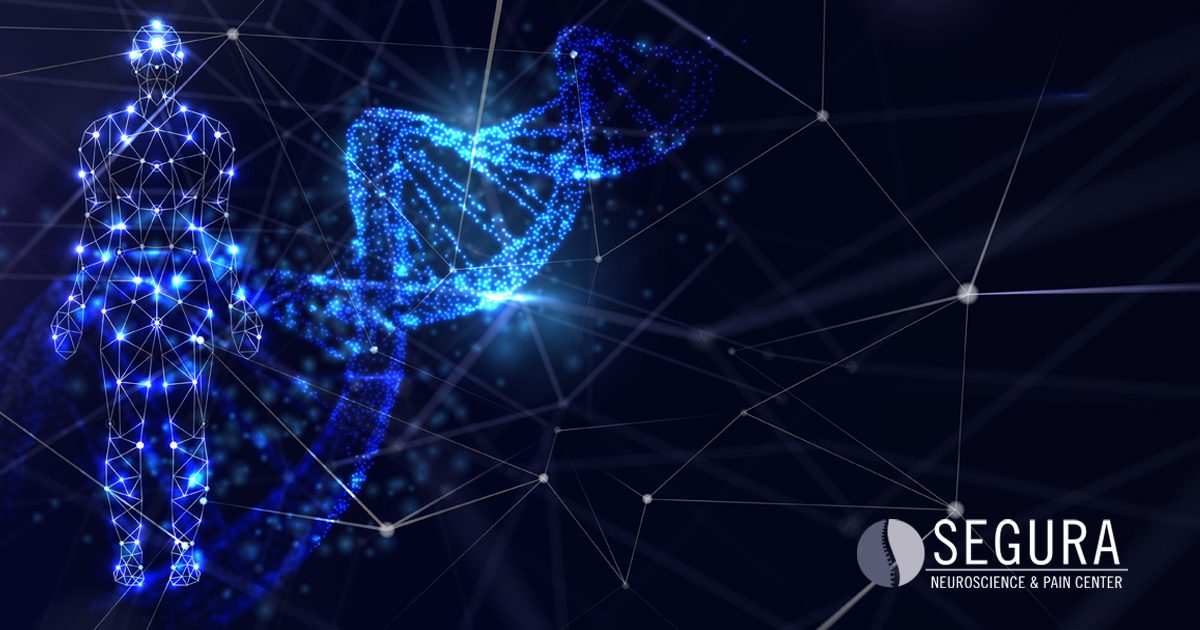
How are genetics and chronic pain related?
Genetic conditions are passed down through DNA. Every person’s DNA is composed of genes from each of their parents. When genetic material is passed down from parent to child, there is a chance that mutated genes will also be passed. These mutated genes make certain people more likely to develop chronic illnesses.
Genetics can also impact the way that people experience pain. Research indicates that people who are closely related are more likely to have a similar perception of pain than those who do not share genetic material. This newly discovered link between genetics and chronic pain could change the way chronic pain is studied, as variations in pain experiences can affect the type of treatment a patient receives.
What pain conditions are linked to genetics?
Are there treatment options for genetic chronic pain?

Non-Surgical Treatment
Non-surgical options for treating chronic musculoskeletal pain include facet joint injections, lumbar transforaminal steroid injections, and medial branch blocks. Hereditary chronic migraine headaches can be treated non-surgically using treatments like botox injections and sphenopalatine ganglion blocks.

Surgical Treatment
If non-surgical means do not succeed in treating a patient’s inherited chronic pain, surgical treatment may be necessary. Some of the surgical treatments used to alleviate chronic pain include the spinal cord stimulator and pain pumps.

Reach out for relief
This website is not intended to provide specific medical advice, medical diagnosis, opinion, treatment or services to you or to any other individual. Through this website and links to other websites, Segura Neuroscience & Pain Center provides general information for educational purposes only. The information provided in this site is not a substitute for medical or professional care. You should not use this information in place of the advice of your physician or other healthcare provider. Segura Neuroscience & Pain Center is not liable or responsible for any advice, course of treatment, diagnosis or any other information, services or product you obtain through this website.
